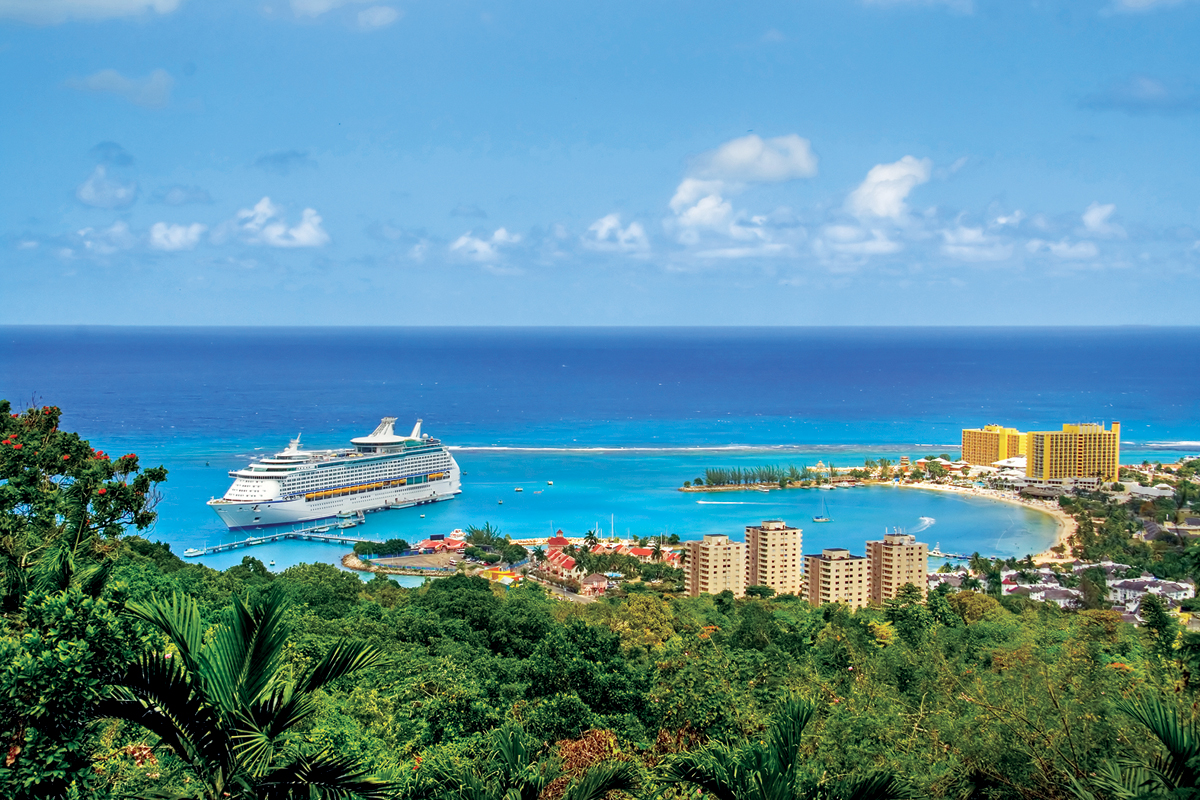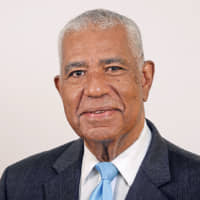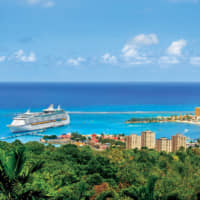The vibrant and increasingly accessible island offers a full spectrum of immersive vacation experiences that extend far beyond it being the perfect location for sun, sea and sand.
Voted the best tourist destination in the Caribbean and one of the top 14 in the world at the TripAdvisor Travelers’ Choice Awards in 2019, Jamaica was one of the stars of the show at October’s Tourism Expo Japan for discerning attendees planning their next vacation.
From March 2020, the country will be much easier to visit thanks to an agreement between the U.S. and Japan to allow increased flight services between both countries. That will enable improved connections to Jamaica. “Someone can leave Tokyo, go to Dallas or Atlanta and connect easily to Montego Bay, for example. We have extraordinary connections with the U.S. and the fares are very fair,” said John Lynch, chairman of the Jamaica Tourist Board (JTB), which coordinated the island’s presence at the October event.
In the same month, JTB appointed the renowned travel specialists Connect Worldwide (CWW) to help increase awareness of the country in Japan by, for example, implementing airline route developments and working with the Japanese travel trade and media. The JTB is also being supported in its bid to attract visitors by the Japan Association of Travel Agents and will, “work with the Japan Travel Bureau and Jamaican travel agencies to create packages that reinvigorate the market,” noted Lynch. Jamaica is seeking to build its airlift arrangements even further for Japan and other Asian countries, Minister of Tourism Edmund Bartlett said “We also need to look at how we can help to promote coach sharing and other kinds of cooperation between airlines to enable seamlessness in terms of vacation packages, for example,” he explained.
This concerted effort to make the country more accessible has helped to reignite the long-held appetite of Japanese people to relish at first hand the vibrant Caribbean nation, its heritage and its authentic culture. “In the 1990s, we had over 20,000 visitors a year from Japan. For various economic reasons there was a downturn in the market and we became known as an expensive place for people to take honeymoons. Today, we are seeing a different type of Japanese tourist coming to our shores — younger and more inquisitive travelers and, of course, business travelers,” noted Lynch.
Many other tourists from around the world are also increasingly choosing the home of reggae as a destination. 4.3 million people visited the island in 2017, where they spent $2.9 billion. “In 2018, tourism arrivals in Jamaica grew by some 7.5 percent, and in the first half of 2019 they grew 10.5 percent over 2018 with our top markets being the U.S., Canada and the U.K. Tourism is the fastest growing sector of our economy,” said Donovan White, director of tourism at JTB. “It now represents 10 percent of our gross domestic product and is responsible for 50 percent of our economy’s foreign exchange,” added Bartlett, while Lynch predicted that the sector will continue to expand and should double in size by 2035.
Traditionally, Jamaica has been seen as an ideal destination for tropical sun, sea, sand and fabulous resorts. Most of its classic hot spots are, therefore, along the dazzling shores of the calm and turquoise Caribbean Sea. These include Kingston, the country’s newly revitalized capital. Built around the world’s seventh-largest harbor, the city contains a fascinating mix of impressive modern buildings and historic gems. These house a multitude of attractions, such as a riches-packed national art gallery, the Bob Marley Museum, a state-of-the-art conference center, the national sports stadium and arena, numerous music venues, a thriving open-air crafts market and a plethora of shops, bars and restaurants. Among its further draws is Devon House, built in the 1880s and now a heritage and gastronomic center of excellence, with the National Geographic describing it as the fourth-best place in the world to eat ice cream.
Some of Jamaica’s other, similarly attraction-filled hot spots are its second-largest city Montego Bay, Negril with its famously white-sanded resorts and Ocho Rios, known in particular for its spectacular waterfalls, which formed from some of the island’s 120 rivers that flow to the coast from its mountains. Those mountains, especially the stunning Blue Mountains that are a UNESCO World Heritage site and the source of Japan’s favorite coffee, are another highlight. They offer magnificent views and eco-lodges, making them the first choice for eco-tourists, hikers, mountain climbers and those looking for remote seclusion.
“One of the things that we pride ourselves on is that Jamaica goes way beyond the sun, sand and sea that you can find anywhere in the Caribbean. The nation is a rounded destination that gives our visitors the opportunity to immerse themselves in everything. We have so much to offer,” stated White.
Igniting the passions of Jamaica’s visitors
“We are now building our tourism offering around the passions of the people who come and visit our island. We have identified five passion points: gastronomy; entertainment, music and sports; health and wellness; shopping; and knowledge,” explained Bartlett. In the case of gastronomy, for instance, “We are building capacity to provide the finest culinary experiences that any visitor could want when visiting Jamaica. That includes establishing the culinary center at Devon House and also the idea of pop-up kitchens, where tourists can learn how to make their favorite dishes,” he added.
The country has also established annual festivals for two of its most renowned products — coffee and rum — and another for cocoa may soon be set up, as Jamaican cocoa produces some of the world’s finest chocolate. “In addition, there is a lot of interest from Japanese tourists and investors who want to experience our tours of the mountainous regions that bear fruit to the coffee that they enjoy so much. We believe that the long, solid relationship between Japan and Jamaica has its roots in food and music,” noted White.
Jamaica is a colossus on the international stage when it comes to music. Over the last 50 years, it has been the origin of seven popular music genres including reggae, ska, rocksteady, dub, dancehall and ragga. These have been unleashed on the world by local pioneering giants like Bob Marley, Toots Hibbert, Sean Paul, Jimmy Cliff and Sister Nancy. Tourists in the country are able to experience the pulsating rhythms of Jamaica at hundreds of festivals, other events and venues throughout the year, which is a big attraction for visitors from Japan, said Bartlett, “Japanese people have a deep appreciation for our music and dance, to the extent that our reigning dancehall queen is actually Japanese!” Tourists are also drawn to Jamaica as a destination of sporting excellence as it has produced many of the world’s leading athletes in recent decades, including Usain Bolt and Shelly-Ann Fraser-Pryce.
In terms of health and wellness, “Jamaica is known for its spa experiences. Our rich biodiversity enables us to drive a more local approach to the oils, herbs and plants used within treatments at our facilities. Jamaica is also known as a destination of some of the finest cannabis that you can find around the world, which is very interesting for alternative medical practices,” stated Bartlett. Although Jamaica has previously lagged behind some other countries in its shopping facilities, it is fast catching up, according to the minister. It is introducing new duty-free incentives to boost purchases and attract more big-name brands.
It is also developing five craft villages across the country that will house a substantial number of local artisans. When it comes to knowledge tourism, the Jamaica Conference Center in Kingston is the perfect location for the international meetings, incentives, conventions and events market. This is complimented by training institutions and universities that provide facilities for events and short courses.
“Overall, Jamaica’s new tourism is defined by three factors: safety, security and seamlessness,” said Bartlett. By guaranteeing those factors, “Today, our rate of repeat visitors is 42 percent. People leave Jamaica with a sense that their money was well spent and they had the time of their lives,” White stated.
Part of the reason for this is a focus on investing in the skills of the local workforce, White explained “We pride ourselves on training the people in our industry to deliver a better product every single day and the kind of services that travelers around the world have come to expect and demand.” Bartlett added: “There are also tourism courses run at our high schools and universities, and we have established the Jamaica Center for Tourism Innovation to create a consolidated professional pathway for competent and experienced workers who are not yet certified. We are also the first country in the world that has a pension plan for all workers in the tourism industry.”
Jamaica is an international frontrunner when it comes to sustainability in tourism as well. “We will soon open the Jamaica Global Resilience and Crisis Management Center at the University of the West Indies in Kingston. It is aimed at assessing, forecasting, mitigating and managing risks related to tourism resilience that are caused by various disruptive factors, including climate change, natural disasters, cybersecurity and pandemics,” Bartlett said. “We believe that this center offers a major opportunity for Jamaica and Japan to collaborate on research that will have a global impact,” White noted.
Building high-quality accommodation
In order to cater for the growing number of tourists coming to the island, “We need to expand our accommodation capacity by building an extra 15,000 rooms within five years,” said White. Between 2016 and 2109, local and international investors added nearly 5,400 high-quality rooms to Jamaica’s stock but “We are always looking for more investment. It would be great to have a Japanese hotel and restaurant on the north coast of Jamaica, for instance,” Lynch said.
As well as chairing the JTB, he heads the country’s Shovel Ready Investment Program “It is a scheme that offers investors that want to build hotels a hand-holding experience to break through red tape and get their projects up and running quickly.”
A leading illustration of the world-class, innovative quality of recent developments in Jamaica’s tourism sector is provided by R Hotel Kingston, the capital’s first extended-stay corporate hotel. “We opened our doors in December 2018 and moved quickly up the ranks on Trip Advisor to become Kingston’s sixth-best rated hotel in the space of five months. I foresee us reaching number one very soon,” predicted R Hotel’s general manager, Alexander Pike. “It is not just the best business hotel in Kingston — we offer our guests the Kingston lifestyle and enable them to experience what it is like to live and work here. It is a very exciting city and, with the advent of social media, it is now more popular than ever. People want Instagrammable moments — Kingston provides those,” Pike added.
Located at the heart of the city’s business and entertainment district, R Hotel offers sophisticated luxury, state-of-the-art technology and a comprehensive concierge experience. It has 48 rooms ranging from deluxe to penthouse suites with balconies and kitchenettes, while on its roof are a fine-dining restaurant, bar and pool. It also contains secure parking, gym and business facilities. Its guests receive the highest level of professionalism, standards and Jamaican hospitality from extremely experienced staff at all levels. “I am the third generation of my family that has worked within hospitality after my mother and grandmother. As a child, I fell in love with the business and it became part of me, to the extent that I would never think about doing anything else,” said Pike.
The partners behind the project, celebrated architect Evan Williams and entertainment mogul and investor Josef Bogdanovich, are keen to support environmental sensibility and the country’s “Brand Jamaica” initiative through the hotel.
Pike said: “The furniture in the rooms was all made by local carpenters. An array of locally produced art is also displayed in the hotel, with most of it being for sale.” R Hotel supports local music as well, not least by hosting the world-famous Redbones restaurant and music venue. “Redbones’ has been well known for over 30 years and is now bringing Jamaican nightlife directly to our international guests. Jamaican live music does not get any more authentic than Redbones,” enthused Pike.
One of the benefits of being a boutique hotel is, as Pike said: “We can get to know our guests in a way that larger hotel chains cannot. We have the city’s only eighth-floor restaurant but there are many other great restaurants in Kingston that we handpick for our guests to experience.” Pike is confident that Jamaica’s tourism market will continue to attract new entrants, “With the stability of our economy and the government following an integrated long-term plan, we are now a country that is ripe for local and international investment.”







